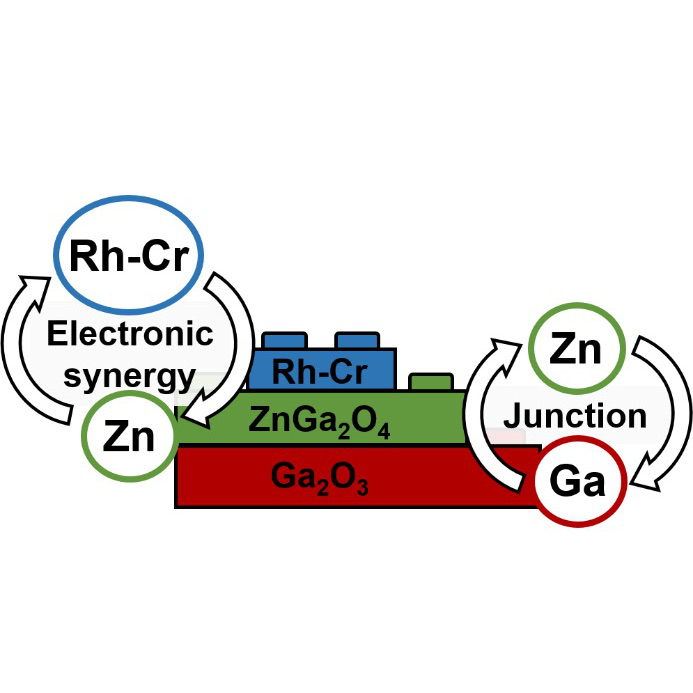Synergistic interplay of Zn and Rh-Cr promoters on Ga2O3-based photocatalysts for water splitting
Photocatalytic water splitting activity of a wide-bandgap material, Ga2O3, is greatly boosted with the addition of Zn and Rh-Cr co-catalyst at optimum loadings. To date, however, the exact roles of the co-catalysts and particularly the origin of their synergistic functions are not clarified. Herein, we present how the optimum Zn loading on Ga2O3 leads to creation of ZnGa2O4/Ga2O3 heterojunction favorable for charge separation through the information on the occupied and unoccupied electronic states of Zn and Ga elucidated by X-ray absorption and emission spectroscopic methods. The function of Rh-Cr as electron sink and reduction site was proven by photocatalytic experiments using an electron scavenger (Ag+) and by learning where Ag deposits and its effects on the photocatalytic activity. Finally, perturbation of Zn electronic structure by photo activation was evidenced by modulation excitation X-ray absorption spectroscopy. Importantly, Rh-Cr markedly enhanced the level of the perturbation, serving as a proof of direct communication and synergy between the electronic states of Zn, present in ZnGa2O4, and Rh-Cr deposited on Ga2O3.

M. Borges Ordoño, S. Yasumura, Pieter Glatzel, A. Urakawa
Phys. Chem. Chem. Phys. 2018, 20, 23515-23521
DOI:
10.1039/C8CP03987A

Let's create a brighter future
Join our team to work with renowned researchers, tackle groundbreaking
projects and contribute to meaningful scientific advancements



















